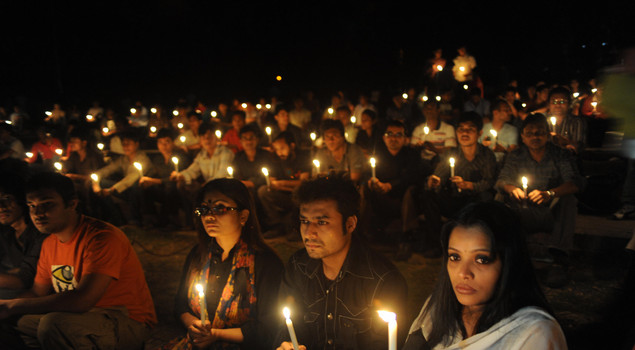By Brendan Oliver Bergh
Impunity Watch Reporter, South America
SANTIAGO, Chile – The last members of the Mapuche Indian hunger strike protesting the Chilean government has ended. The Indigenous Inmates hunger strike which began July12 2012 was in protest of the treatment they received and misuses of their ancestral lands.

Late Sunday Evening one of the protesters, Quijo Leonardo had to be transferred from his cell after abdominal pain led to a minor episode of cardiac arrest. However at the medical center he refused medical treatment after a blood test and the staff was forced to return him to the prison in Temuco, Chile.
The Mapuche inmate strike began with members of the indigenous tribe forsaking food and medical treatment. These inmates believing themselves to be political prisoners are protesting the Chileans treatment of the Mapuche indigenous tribe. They continue that their group has been unfairly prosecuted and their human rights continually violated. Their numbers have slowly dwindled during the past 2 months as health reasons have forced them to abandon their protest of the Chilean laws that placed them in prison.
The prison in Angol has a permanent group of protesters outside the cities jail, actively protesting the anti-terrorist law. The bulk of the protest is criticizing the Chilean governments use anti-terrorism laws that unfairly prosecute Mapuche members. Known as the Anti-Terrorism Act, it was originally enacted by General Pinochet who used it to quell dissent and subversives of his government. In 1993 the government began enforcing the law to actively criminalize the Mapuche social movement. The law allows citizens to be detained indefinitely and tried in military tribunal courts where they would receive harsher sentences than in a civilian court.
While the Chilean government has vowed to support changes to the anti-terrorism laws, Mapuche protesters are still being met with violent response from the countries national police force. The hunger strike that was just ended could be seen as an extension of the a similar strike that occurred two years prior where 30 Mapuche inmates refused food. Their message was overshadowed by the rescue of the trapped Chilean Miners in 2010.
Chilean government officials and representatives feared violent conflict as the protest continued, with human rights experts fearing a violent outburst if one of the protesters died. Small skirmishes have already erupted on October 15th, after individual inmates suffered health risks as a result of their hunger strikes.
While not all their demands were met, representatives believe that “The steps taken to end the hunger strike have reached a satisfactory conclusion,” and would be welcomed by the Mapuche people.
There are approximately 650,000 Chileans who identify as members of the Mapuche, almost 3.5 percent of the people in Chile.
For further information; please see:
Latercera – Mapuche Still On Hunger Strike And Refuse Medical Care – 22 October 2012
Latin America Herald Tribune – Last 10 Mapcuche Indians On Hunger Strike In Chile End Fasting – 22 October 2012
UNPO – Mapuche: Court Action For Human Rights Against Chile – 22 October 2012
The Argentina Independent – Chile: Court Sends Mapuche Hunger Strikers Back To Prison – 19 October 2012
Sounds and Colours Magazine – Mapuche Hunger Strike In Chile Highlights The Real Problem Facing President Sebastian Pinera – 15 October 2010

